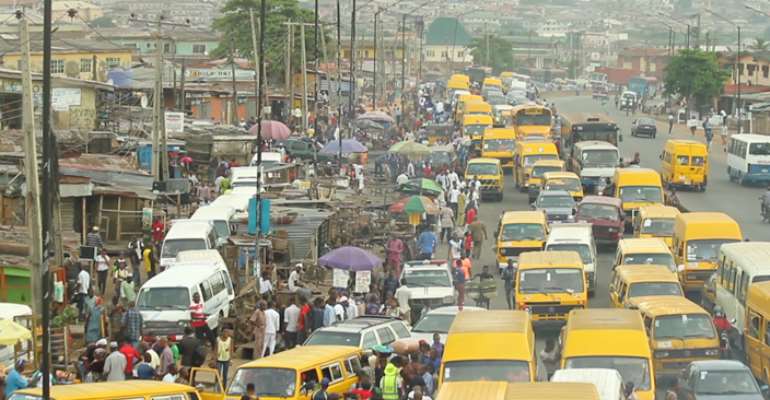Nigeria Set for Positive Growth After Recession- CNN

On this week’s episode of ‘Marketplace Africa’, the programme examines Nigeria’s next steps as the country recovers from the recession.
Africa’s largest economy appears to set for positive growth after the country’s GDP experienced a rise of 0.55 percent in the second quarter of 2017. The programme meets Alhaji Lai Mohammed, Nigeria’s Minister for Information and Culture, to discover what’s next for the economy.
Mohammed outlines the increasing strength of Nigeria’s economy: “There’s a great sense of optimism. Capital inflow has increased [by] about 92 percent between the first and second quarters. The currency has stabilised. Our external trade balance is positive.”
Although growth is slow, many hope these signs of improvement indicate the start of an economic upturn. Mohammed, however, suggests that any positive economic growth will be a long process: “[Nigerians] will not start feeling the effects of getting out of the recession overnight.”
Nigeria slipped into recession in 2016 after its vital oil sector dropped in both price and production. Uche Orji, CEO and Managing Director of Nigeria Sovereign Investment Authority, explains how the government may approach the sector in the future: “As much as Nigeria is perceived as an oil economy, it’s only 15 percent of GDP. Today, it represents 90 percent of government revenue. So there must be a link between the economy and government revenue in terms of diversifying government revenue beyond oil.”
As the head of an organisation tasked to promote Nigeria’s economic development, Orji determines the country must look for other opportunities as the globe moves away from fossil fuels. He explains: “The reality is that we all have to accept that somewhere between 2035 and 2040, [we] might start to see the major element of oil demand start to fade. We’re focused now on tapping resources like gas and solid minerals - everything from gold and lead to zinc and coal.”
However, Nigeria’s Minister of Industry, Trade and Investment Okechukwu Enelamah believes that before the government focus on industry, infrastructure must first be improved. “You need to rebuild the infrastructure. It’s a no brainer in terms of implementation, but also in terms of the solution. If you rebuild the infrastructure, the economy will move well beyond you.”
Host Zain Asher meets Nigeria’s Vice President Yemi Osinbajo, who agrees that there is an opportunity for Nigeria to bounce back after the recession: “There are more opportunities for local production. More opportunities in agriculture, agroprocessing and even in technology.”
Another way for Nigerians to boost the economy is through buying locally-made products and produce, rather than purchasing imports. Osinbajo hopes that the improvement in the quality of local products will mean that more Nigerians are feel inclined to buy them: “Manufacturing in Nigeria – food, beverages, clothing, shoes… - the packaging is much better and quality is much better.”
In addition to this, the government is hoping that by setting an example, more Nigerians will be encouraged to purchase ‘Made In Nigeria’ products. “We have an executive order which insists the government itself must purchase locally, including military purchases. The policy is where it should be and we should see some results from that”, Osinbajo explains.
One thing growing faster than the economy is Nigeria’s population and with this comes another opportunity for the economy. Orji explains: “50 percent of our population are under the age of 20. That’s 17 to 18 million young people, which I think can be turned into a big opportunity for growth. With the right investment, [we] can create enough opportunities internally to continue to thrive.”
Nigeria’s creative youth is already having an impact in some areas. Mohammed explains: “The creative industry grew by 11.6 percent in the second quarter of the year. Nigeria has complete advantage in certain areas, especially the film, music, theatre and fashion industries.”
‘CNN Marketplace Africa’ airs Friday 10thNovember at 1615 WAT on CNN International
The programme also airs at the following times:
Saturday 11th November at 1715 WAT
Sunday 12th November at 0200 WAT and 0815 WAT
Monday 13th November at 0300 WAT and 1845 WAT
Website: www.cnn.com/marketplaceafrica
About CNN International
CNN’s portfolio of news and information services is available in seven different languages across all major TV, digital and mobile platforms reaching more than 450 million households around the globe. CNN International is the number one international TV news channel according to all major media surveys across Europe, the Middle East and Africa, the Asia Pacific region and Latin America and has a US presence which includes CNNgo. CNN Digital is a leading network for online news, mobile news and social media. CNN is at the forefront of digital innovation and continues to invest heavily in expanding its digital global footprint, with a suite of award-winning digital properties and a range of strategic content partnerships, commercialised through a strong data-driven understanding of audience behaviours. Over the years CNN has won multiple prestigious awards around the world for its journalism. In addition, around 1,000 hours of long-form series, documentaries and specials are produced every year by CNNI’s non-news programming division, CNN Vision. CNN has 38 editorial offices and more than 1,100 affiliates worldwide through CNN Newsource. CNN International is part of Turner, a Time Warner company.
